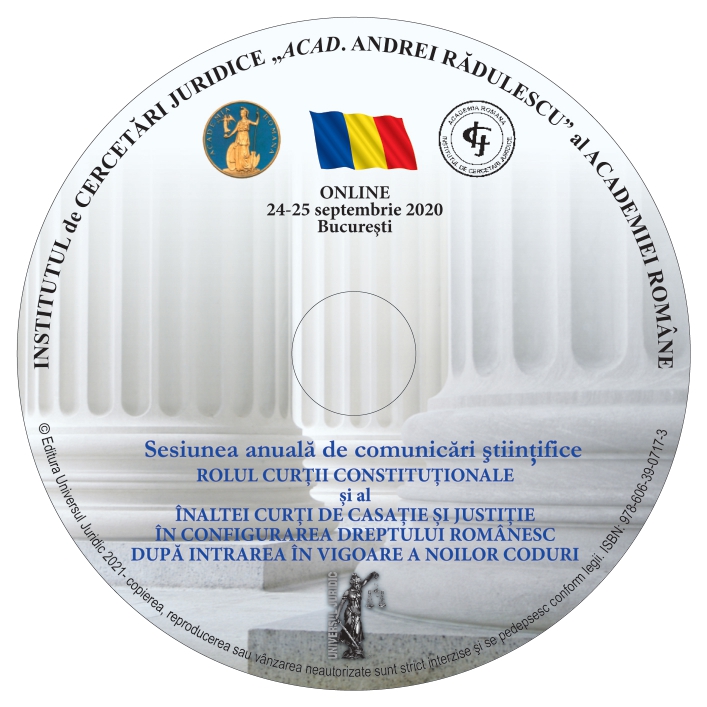Unele considerente privind principiul proporționălității în cadrul statului de drept
Some Considerations on the Principle of Proportionality in the Rule of Law
Author(s): Cristian Popa, Antonia-Luciana Paun
Subject(s): Law, Constitution, Jurisprudence, Criminal Law
Published by: Universul Juridic
Keywords: the principle of proportionality; democracy; the rule of law;
Summary/Abstract: The principle of proportionality is an exception from the rigidity of the principles of law and fundamental rights as a result of the effects obtained, respectively a coherent legislative system, focused on the decisions of the constitutional court related to the prerogatives established by the Constitution in the matter of timely and effective regulation of the fundamental principles and rights within the rule of law. Viewed as a constitutional standard, the principle constitutes an instrument of the constitutional judge, through which he can reconceptualize the existing constitutional texts by adding new valences in line with the dynamics of the democratic state. Proportionality is therefore not only an interpretative method of the legislative norm, but also a general principle of law, through which the existing conflicts between competing constitutional values are optimized, which require a certain limitation so that each one can reach its optimal purpose in conditions of normative balance. Therefore, the reception of the principle within the rule of law must aim at creating and sustaining a balance be tween fundamental rights and freedoms, on the one hand, and competing constitutional principles, on the other. Otherwise, an alteration of the purpose of proportionality can be generated within the constitutional analysis at the legislative level, with negative effects on the democratic balance of the state powers.
- Page Range: 378-384
- Page Count: 7
- Publication Year: 2020
- Language: Romanian
- Content File-PDF

